What are Tennis Balls
Tennis balls are an essential component of the sport of tennis, used by players of all levels from amateurs to professionals. They are spherical balls specifically designed for the game and are regulated in terms of size, weight, deformation, and bounce to ensure fair and consistent play. The standard tennis ball is covered in a fibrous felt which modifies its aerodynamic properties and provides a suitable surface for the tennis racquet to grip and impart spin.
Players, coaches, and tennis enthusiasts use these balls across a variety of contexts, including recreational play, training drills, competitive matches, and even as toys for pets. The design of tennis balls is crucial for player performance; they must respond predictably during fast-paced rallies and when subjected to powerful strokes and spins.
The core of a tennis ball is typically made from rubber, which provides the necessary elasticity. They may be pressurized (with air or nitrogen inside) to ensure optimal bounce or pressureless for a different playing experience and longer life span. The principles behind their function involve physics; when struck by a racquet, the ball deforms then quickly snaps back into shape, propelling it forward with speed and potentially spin depending on the stroke used.
Types of Tennis Balls
Tennis balls come in various types tailored to match the specific needs of players and court surfaces:
Pressurized Tennis Balls: These are the most commonly used balls in competitive tennis. Pressurized balls have a hollow core filled with air or nitrogen, providing a lively bounce and faster speed. They're often preferred in professional matches but have a shorter life span as they lose pressure over time.
Pressureless Tennis Balls: Unlike their pressurized counterparts, pressureless balls have a solid core. They are less responsive initially but gain bounce as their felt cover wears down. These balls are ideal for practice sessions as they last longer and are also favored for use in ball machines.
High-Altitude Tennis Balls: At higher altitudes, regular balls tend to bounce higher and move faster. High-altitude tennis balls are designed with lower internal pressure to compensate for these conditions, providing a more controlled game.
Training Tennis Balls: These are designed for players developing their skills. Training balls can be softer, larger, or have less bounce to facilitate learning the basics of tennis strokes and improving coordination.
Stage 1 (Green Dot), Stage 2 (Orange Dot), Stage 3 (Red Dot) Tennis Balls: These are part of the Play and Stay initiative to make learning tennis easier for beginners and children. Each stage corresponds to different levels of bounce and speed suitable for various age groups and skill levels.
How to choose Tennis Balls
Selecting tennis balls for your business involves understanding the needs of your target customers or end-users. For instance, sports clubs might require high-quality pressurized tennis balls for tournaments while coaches might look for durable pressureless options for training purposes. Here's how you can decide:
Usage Type: Consider whether the balls will be used for competitive matches, training sessions, or recreational play. Each scenario may require different types of balls like pressurized for competition or pressureless for practice.
Surface Compatibility: The type of court surface (clay, grass, hard) can influence which ball is best suited due to variations in bounce and wear. Some balls are specifically designed to perform better on certain surfaces.
Durability: Especially important if your clients include coaches or training centers that use ball machines, durable pressureless balls may be more cost-effective in the long run.
Player Skill Level: For businesses catering to beginners or children, consider slower-moving and lower-bouncing stage balls that comply with the Play and Stay guidelines.
Remember that these decisions should align with your clientele's preferences as well as economic considerations such as bulk pricing options available through wholesale purchasing.
Best Tennis Balls on Alibaba.com
For businesses seeking a diverse selection of tennis balls that cater to all levels of play, Alibaba.com offers an extensive range to choose from. This global marketplace connects buyers with suppliers all around the world, ensuring that whether you need pressurized balls for professional matches or larger low-compression ones for junior training programs, you'll find suitable options on Alibaba.com.
Purchasing through Alibaba.com not only provides access to a wide variety of choices but also offers services like Trade Assurance which adds an extra layer of security by protecting payments until delivery is confirmed. This feature is particularly valuable when ordering in bulk quantities or sourcing high-quality materials like natural rubber or wool felt tennis balls.
With Alibaba.com's easy-to-use platform featuring mobile-friendly purchasing and support in multiple languages, sourcing tennis balls for your business needs becomes an efficient process. Whether you're outfitting a local tournament or supplying coaching clinics across borders, Alibaba.com simplifies international trade while supporting small to medium-sized businesses with reliable trade solutions.
Common FAQs for Tennis Balls
What factors should I consider when choosing tennis balls for my business?
When selecting tennis balls for your business, consider the playing surface, the skill level of the players you're supplying, and the type of play—whether it's for competitive matches, training, or recreational use. Durability and cost-effectiveness for bulk purchasing are also important factors.
How do the different types of tennis balls impact player performance?
Different types of tennis balls, such as pressurized, pressureless, and stage balls, have varying impacts on performance. Pressurized balls offer more speed and bounce for competitive play, while pressureless balls provide consistent performance over time, making them ideal for practice. Stage balls are designed to help beginners and children learn the game more easily.
Can I find eco-friendly tennis ball options for my environmentally conscious customers?
Yes, you can find eco-friendly tennis balls made with natural rubber and other sustainable materials. Look for features such as eco-friendly or sustainable in the product descriptions to cater to environmentally conscious customers.
What are high-altitude tennis balls, and when should they be used?
High-altitude tennis balls are designed with lower internal pressure to account for the different playing conditions at higher elevations where regular balls may bounce too high or move too quickly. They should be used when playing or selling in regions located at high altitudes.
How do I choose tennis balls suitable for different court surfaces?
Select tennis balls that are optimized for the specific type of court surface your customers will be playing on. For example, some tennis balls are specially designed to perform better on clay courts, while others may be more suited for grass or hard courts.
Are there specific tennis balls recommended for use in ball machines?
Yes, pressureless tennis balls are generally recommended for use in ball machines due to their longer life span and consistent performance over time even with heavy use.
What options are available for businesses looking to purchase customized tennis balls?
Many suppliers on Alibaba.com offer customization options where you can have logos or specific designs printed on the tennis balls. Ensure that customization options align with your brand requirements and customer preferences.
How can I ensure that I'm purchasing high-quality tennis balls?
Look for suppliers who provide detailed product descriptions and specifications. Pay attention to materials used, such as natural rubber content or wool percentage, which can indicate the quality of the ball.
What is the difference between pressurized and pressureless tennis balls in terms of longevity?
Pressurized tennis balls tend to have a livelier feel but lose their bounce over time as they lose internal pressure. Pressureless tennis balls may feel less responsive initially but maintain their bounce and last longer since they do not rely on internal pressure.
Are there tennis balls designed specifically for junior players or beginners?
Yes, there are low-compression stage 1 (green dot), stage 2 (orange dot), and stage 3 (red dot) tennis balls that are part of the Play and Stay initiative. These are designed with varying levels of bounce and speed suitable for junior players and beginners.
How does the felt covering affect a tennis ball's performance?
The fibrous felt covering on a tennis ball affects its aerodynamics and influences how well the ball can be gripped by a racquet. This impacts the ball's speed, spin potential, and overall playability on different court surfaces.
Should I consider color variations when stocking tennis balls for my business?
While standard yellow is most common due to its visibility, considering color variations may be beneficial if you cater to diverse uses such as promotional events or pet toys where different colors could be appealing.
Is there a standard size and weight for competition-grade tennis balls?
Yes, competition-grade tennis balls must adhere to specific size and weight regulations set by governing bodies like the International Tennis Federation (ITF) to ensure fair play in matches.




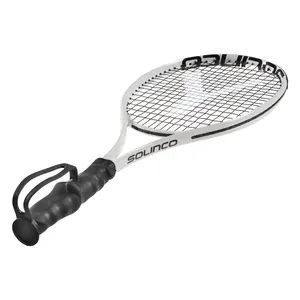



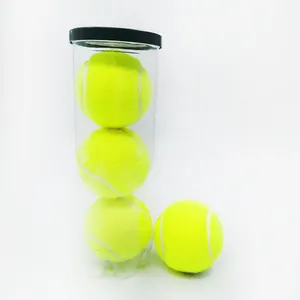

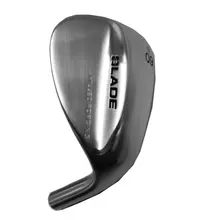







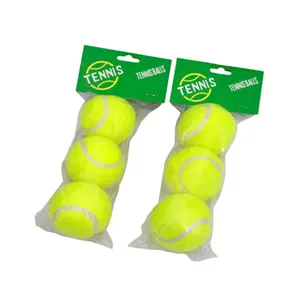



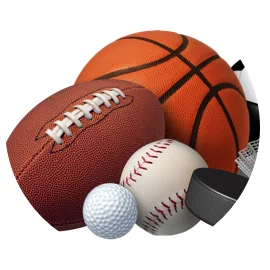
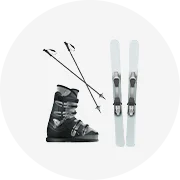



















 浙公网安备 33010002000092号
浙公网安备 33010002000092号 浙B2-20120091-4
浙B2-20120091-4